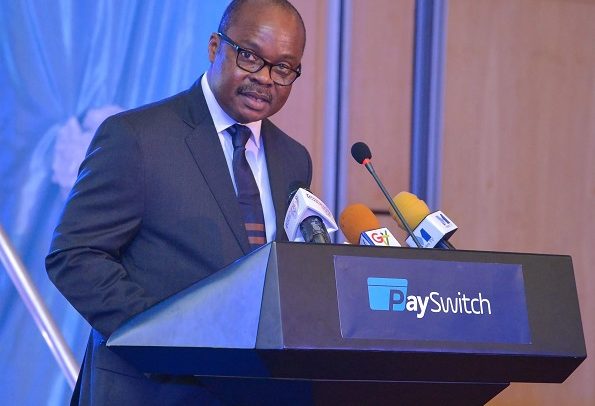Dr Ernest Addison. BoG Governor
The trade balance improved in the first half of the year driven by higher exports relative to imports, the Bank of Ghana has stated.
The trade surplus improved to US$1.81 billion in the first half of the year, compared to the surplus of US$1.60 billion recorded in the corresponding period of 2023.
Exports
Total exports increased by US$1.01 billion to US$9.23 billion, while imports rose by US$884.5 million to US$7.42 billion.
The increase in total exports was largely on the back of strong growth in gold and crude oil exports.
In the first half of the year, the value of gold exports increased by 46.4 percent to US$5.04 billion, while earnings from crude oil exports increased to US$2.0 billion, from US$1.7 billion in the same period last year.
In contrast, cocoa exports, both beans and products, declined by 47.4% to US$760.0 million in the first half of 2024, from US$1.45 billion in the first half of 2023. Other exports, including non-traditional declined by 8.7% to US$1.5 billion, over the same comparative period.
“Prices of Ghana’s major export commodities traded mixed on the international market. Cocoa price futures bounced back after declining by 19.2% in May 2024, to US$9,022.6 per tonne, representing 1.1% growth in June 2024.
“Crude oil prices remained broadly stable in June 2024 with an average price of US$83.01 per barrel. Spot gold prices, however, dropped marginally by 1.1% to close at an average price of US$2,325.34 per fine ounce in June 2024,” the Bank of Ghana revealed in its latest release.
Imports
Total import bill also increased, driven by both oil and non-oil imports. Oil imports increased by 6.1% to US$2.3 billion while non-oil imports increased by 17.2% to US$5.1 billion. Consequently, the total imports bill rose by 13.5 percent to US$7.42 billion in the first half of the year.
Current, Capital Accounts
The current and capital accounts improved over the period supported by higher external inflows and lower outflows. The improved trade surplus, alongside higher remittance flows resulted in a higher current account surplus of US$1.28 billion in the first half of the year, compared to a surplus of US$863.0 million in the same period in 2023.
The capital and financial account reduced from a net outflow of US$1.04 billion in 2023 to a lower net outflow of US$367.5 million in 2024, due to higher government loan disbursements, reduced amortisations and significantly lower portfolio outflows. Other capital flows, including private capital, recorded a net outflow of US$1.6 billion, from an outflow of US$1.1 billion over the same period in 2023.
These developments in the external sector resulted in an improved balance of payments position. The current account surplus, together with the reduced capital outflows, resulted in an overall balance of payments surplus of US$942.3 million in the first half of 2024, compared to a deficit of US$341.0 million in the same period in 2023.
International Reserves
There was significant buildup in international reserves during the first six months of the year.
Gross International Reserves (GIR) increased by US$947 million to US$6.87 billion at end-June 2024, equivalent to 3.1 months of import cover. Net International Reserves also increased by US$1.31 billion to US$4.50 billion at end-June 2024. The higher build-up in Gross International Reserves was aided by the strong performance of the domestic gold purchase programme.
Local Currency
The Ghana cedi came under pressure in the first half of the year, especially in May 2024, but has since eased. The relative stability on the foreign exchange market in the past few weeks reflects the continued tight monetary policy stance, implementation of the dynamic
From the beginning of the year to 19th July 2024, the Ghana Cedi depreciated by 19.6 percent against the US Dollar, compared with 22.1 percent for the same period of last year.
By Samuel Boadi


